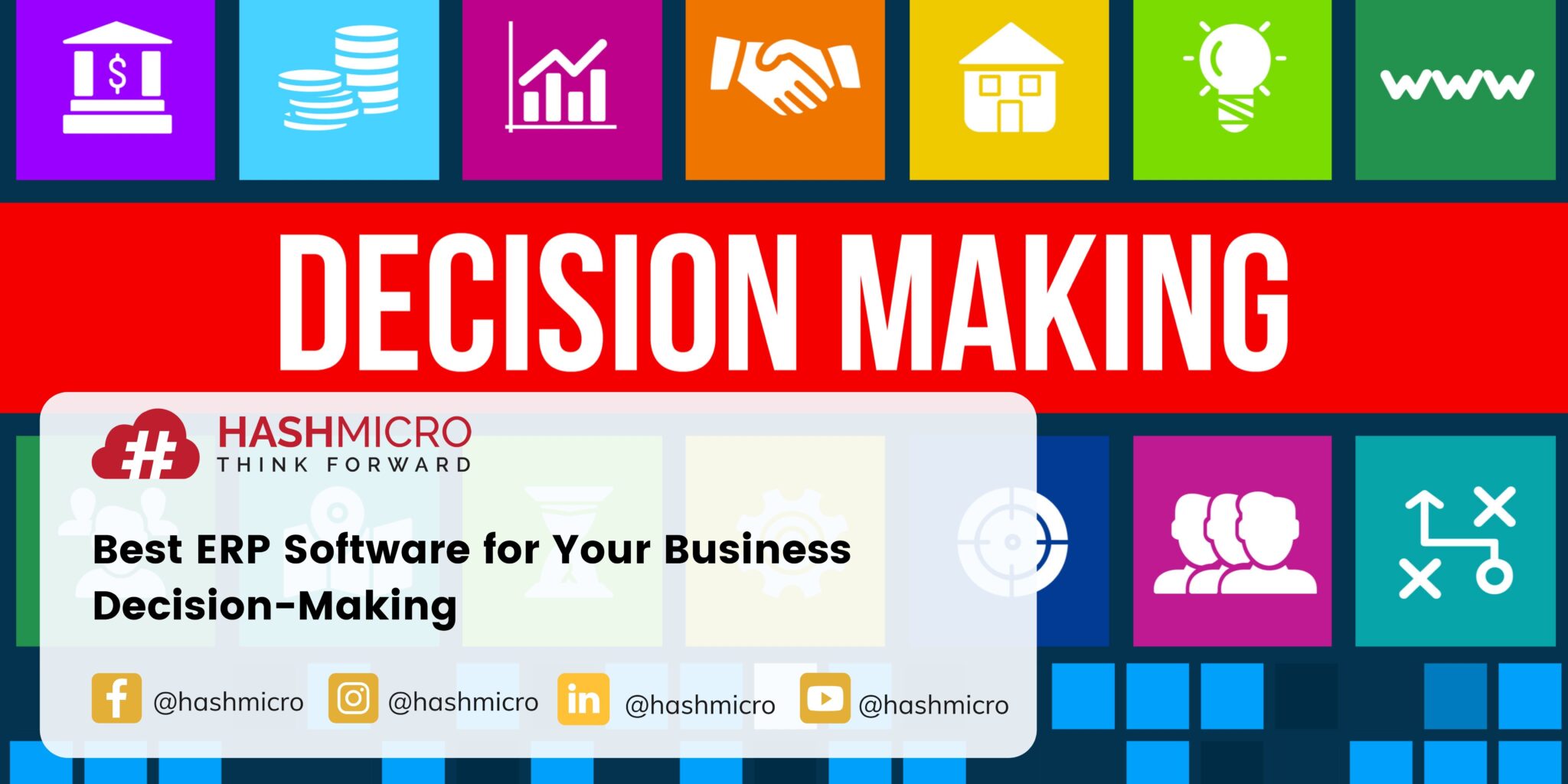When I first started running my business, I quickly realized that making the right decisions wasn’t just about intuition. Without the correct information, even small mistakes could lead to reduced profits and missed opportunities.
That’s when I discovered how ERP Software could be. This system connects every part of the business—finance, operations, sales, and production, into one integrated platform. Instead of relying on scattered reports, I could access clear and accurate data instantly.
With ERP software, decision-making became faster, smarter, and more strategic. It didn’t just help me improve efficiency but also boosted my company’s profitability and long-term sustainability.
Key Takeaways
|
ERP System Decision-Making
ERP Software Systems are the nerve center of the Management for Medium to Large Organizations. It is a blend of various inter-related modules essential for the company’s operations and finance.
All departments of a company contributing to the cost of its product or service will be included in an efficient ERP software. This application differs from individual application software that uses it only for specific purposes.
An ERP system has individual modules that run as application software within the concerned department but are also a part of the ERP software to get the data for Management reports.
The Importance of ERP Software in Decision-making
The management, especially the marketing team, needs to wait until the sales entry update is completed to make a proper assessment. This lag occurs due to a lack of access to real-time data.
If they use ERP software systems, the actual data will be available immediately to the management at any given time. Sales depots can install sales modules to connect to a central server with management.
Here are the importance of ERP software in decision-making:
- Computerized Core Processes: Functions like purchasing, inventory, accounting, and HR should be automated through independent yet integrated ERP modules.
- Real-Time Data Access: Integrated systems provide accurate, real-time reports on stock levels and finances, helping management make quick purchasing decisions.
- Cost and Performance Analysis: With centralized data, management can identify costly processing stages, evaluate HR system expenses, and track profit or loss at any time.
Also read: YOY Growth: Get to Know the Benefits and How to Calculate It!
How ERP Software Helps the Management in Decision-Making?
In today’s competitive business environment, decision-making has become a critical function in every organization’s daily operations. To ensure long-term success, business leaders must rely on accurate, data-driven insights rather than assumptions.
This is where ERP Software plays a key role. Equipped with integrated modules that digitize departmental processes, ERP software consolidates data across various functions into a single system.
Authorized personnel can access comprehensive, real-time reports from anywhere, ensuring that management always has accurate information to evaluate performance against set targets and take corrective actions promptly.
With centralized and up-to-date data, budgeting and forecasting become much more precise. Management can compare actual results with planned objectives instantly, identify gaps, and make informed adjustments to improve efficiency.
By providing financial and operational visibility at their fingertips, ERP software enables decision-makers to focus on what matters most, driving progress and achieving measurable business growth.
Here is a table summary that discusses how ERP software helps the management in decision-making
Integrated SystemCombines multiple departmental processes into a single, centralized platform
| Key Aspects | Kekurangan |
| Data-Driven Decision-Making | ERP provides accurate, real-time data to support smarter business decisions. |
| Budgeting & Forecasting | Enables precise financial planning by comparing actual vs. target results. |
| Performance Evaluation | This tool helps management track progress and take corrective actions quickly. |
| Operational Visibility | This report offers a clear overview of all business activities for better efficiency. |
| Business Growth | Supports strategic planning and drives measurable company progress. |
| Integrated System | Combines multiple departmental processes into a single, centralized platform |
| Real-time Access | Authorized users can access live reports anytime, anywhere. |
Also read: ERP System Procurement: Definition, Benefits, and Features
How to Choose the Best ERP Software Provider in Singapore?

Many ERP providers are coming up in Singapore because of the rapidly growing demand for ERP software. Two factors can be your consideration in choosing the best ERP software provider in Singapore. Here are the two factors you need to know:
Reputation and experience of the provider
When choosing the best ERP solutions for the Singaporean market, the reputation and experience of the company in the particular industry would be the biggest deciding factor.
- Requirement Compatibility: Ensure the ERP system meets your company’s operational and technical requirements before purchase. A good fit minimizes future customization costs and maximizes efficiency.
- Pricing vs. Quality: While some providers offer lower prices to stay competitive, don’t sacrifice performance or reliability for cost savings. Long-term efficiency is more valuable than a cheaper upfront deal.
- Innovative Startups: Consider newer ERP startups that provide modern, agile solutions. Many of them offer advanced features and better adaptability compared to legacy systems.
- Efficiency First: Always prioritize system performance, scalability, and ease of use. A reliable ERP solution should enhance operations, not add complexity.
The modules offered
The best way to choose the best ERP solution for an organization is to check multiple solutions available in the industry and then choose the one closest to the organization’s requirements.
Key points to consider when implementing an ERP System that the modules should offer:
- Negotiation and Cost: Discuss pricing based on provider experience and required customizations, but prioritize efficiency over low cost.
- Complete Modules: A good ERP includes Finance, HR, Sales, Purchase, Inventory, Operations, Budgeting, and MIS modules.
- MIS Integration: The MIS module supports management with integrated reports and real-time performance insights across departments.
Read more: Revolutionize Poultry Processing with ERP Software Solutions
Conclusion
ERP software offers a variety of modules and solutions to help your business make efficient decisions and improve performance. This system provides the convenience of precise and accurate data, enabling you to make the right decision.
Implementing a HashMicro’s ERP system can help an organization progress with digital data readily available for management. HashMicro can be your choice to get the best ERP software.
ERP software from HashMicro helps you streamline your business processes and significantly drive your company’s growth. Hash CORE ERP is the best solution to help you make better decisions for your business. Get a free demo now!

Frequently Asked Questions
-
How does ERP software improve decision-making?
ERP software provides real-time, accurate data across all departments, helping management make faster and more informed business decisions based on actual performance metrics.
-
What kind of insights can ERP systems provide?
An ERP system delivers comprehensive reports on finance, sales, inventory, HR, and operations—allowing decision-makers to identify trends, track efficiency, and plan strategic actions effectively.
-
Why is ERP better than traditional data management tools?
Unlike manual systems or separate software tools, ERP integrates all business data into one platform. This eliminates duplication, reduces errors, and ensures decisions are based on complete, up-to-date information.

































